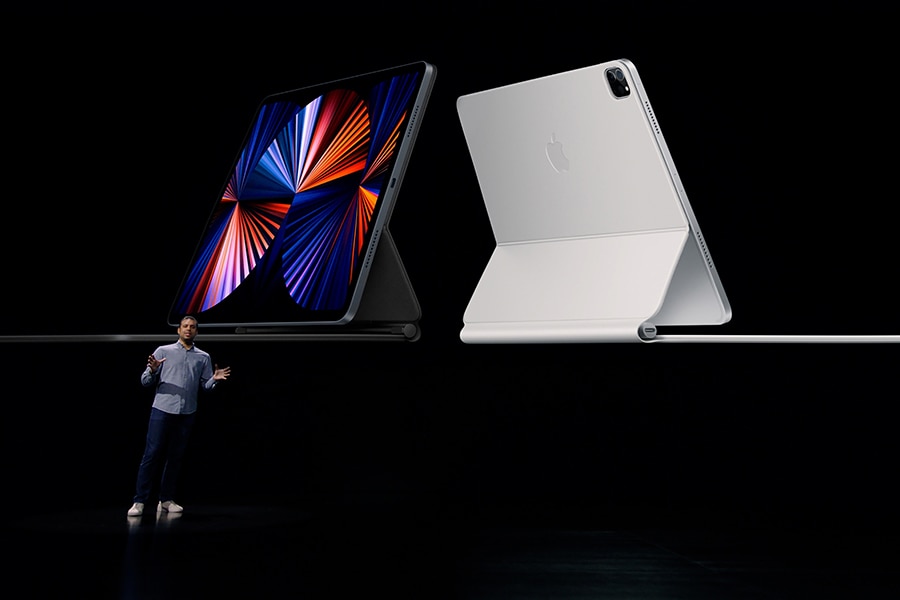
Apple's new devices target markets led by smaller rivals
The company has unveiled a series of new products that showed how it continues to centre its marketing pitch on consumer privacy while muscling into new markets pioneered by much smaller competitors
 Raja Bose of Apple announces the new iPad Pro during a product unveiling on Tuesday, April 20, 2021, in Cupertino, Calif. Apple unveiled a series of new products on Tuesday that showed how it continues to center its marketing pitch around consumer privacy, at the potential expense of other companies, while muscling into new markets pioneered by much smaller competitors; Image: Brooks Kraft/Apple Inc. via The New York Times
Raja Bose of Apple announces the new iPad Pro during a product unveiling on Tuesday, April 20, 2021, in Cupertino, Calif. Apple unveiled a series of new products on Tuesday that showed how it continues to center its marketing pitch around consumer privacy, at the potential expense of other companies, while muscling into new markets pioneered by much smaller competitors; Image: Brooks Kraft/Apple Inc. via The New York Times
Apple unveiled a series of new products Tuesday that showed how it continues to center its marketing pitch on consumer privacy, at the potential expense of other companies, while muscling into new markets pioneered by much smaller competitors.
In an hourlong infomercial that was streamed from its Silicon Valley headquarters, Apple showed off a new high-end iPad and an iMac desktop computer based on new computer processors that Apple makes itself. The company also said it was redesigning its podcast app, which competes with companies like Spotify, to enable creators to charge for their shows. And it revealed the AirTag, a $29 disc that attaches to key rings or wallets so they can be found if lost.
But after its product show, Apple made other news that could have far more significant, industrywide implications. The company said in a news release that it planned to release highly anticipated iPhone software next week with a privacy feature that worries digital-advertising companies, most notably Facebook.
The feature will require apps to get explicit permission from users before tracking them across other apps. As a result, when opening many apps next week, owners of iPhones will see pop-up windows that ask them whether to allow that tracking. Companies that rely on digital advertising are expected to gather less data about users as people decline the tracking.
Apple and Facebook have been locked in a war of words over the change, with Facebook arguing that it will hurt the digital advertising that helps fund free internet services. Apple has said it is merely giving consumers the right to choose whether to be tracked.
©2019 New York Times News Service




